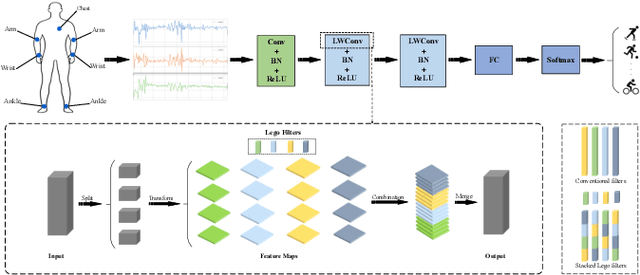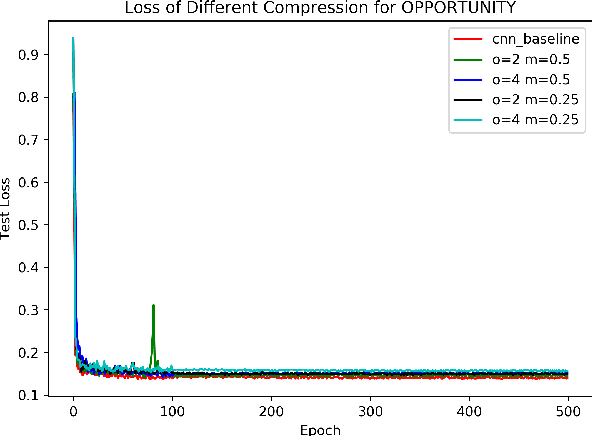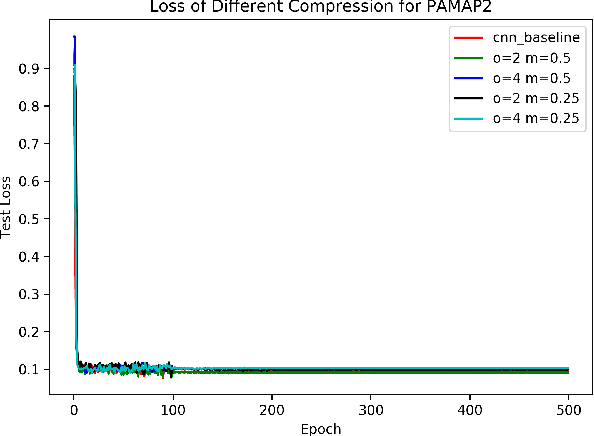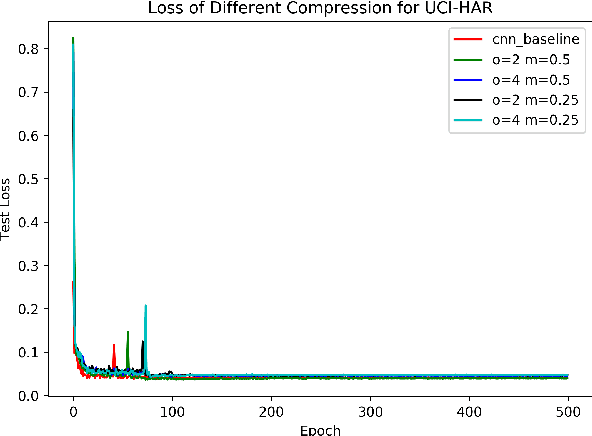Efficient convolutional neural networks with smaller filters for human activity recognition using wearable sensors
Paper and Code
May 08, 2020



Recently, human activity recognition (HAR) has been beginning to adopt deep learning to substitute for traditional shallow learning techniques that rely on hand-crafted features. CNNs, in particular, have set latest state-of-the-art on various HAR datasets. However, deep model often requires more computing resources, which limits its applications in embedded HAR. Although many successful methods have been proposed to reduce memory and FLOPs of CNNs, they often involve special network architectures for visual tasks, which are not suitable for deep HAR tasks with time series sensor signals, due to remarkable discrepancy. Therefore, it is necessary to develop lightweight deep models to perform HAR. As filter is the basic unit in constructing CNNs, we must ask whether redesigning smaller filters is applicable for deep HAR. In the paper, inspired by the idea, we proposed a lightweight CNN using re-designed Lego filters for the use of HAR. A set of lower-dimensional filters is used as Lego bricks to be stacked for conventional filters, which does not rely on any special network structure. To our knowledge, this is the first paper that proposes lightweight CNN for HAR in ubiquitous and wearable computing arena. The experiment results on five public HAR datasets, UCI-HAR dataset, OPPORTUNITY dataset, UNIMIB-SHAR dataset, PAMAP2 dataset, and WISDM dataset, indicate that our novel Lego-CNN approach can greatly reduce memory and computation cost over CNN, while maintaining comparable accuracy. We believe that the proposed approach could combine with the existing state-of-the-art HAR architecture and easily deployed onto wearable devices for real HAR applications.
 Add to Chrome
Add to Chrome Add to Firefox
Add to Firefox Add to Edge
Add to Edge